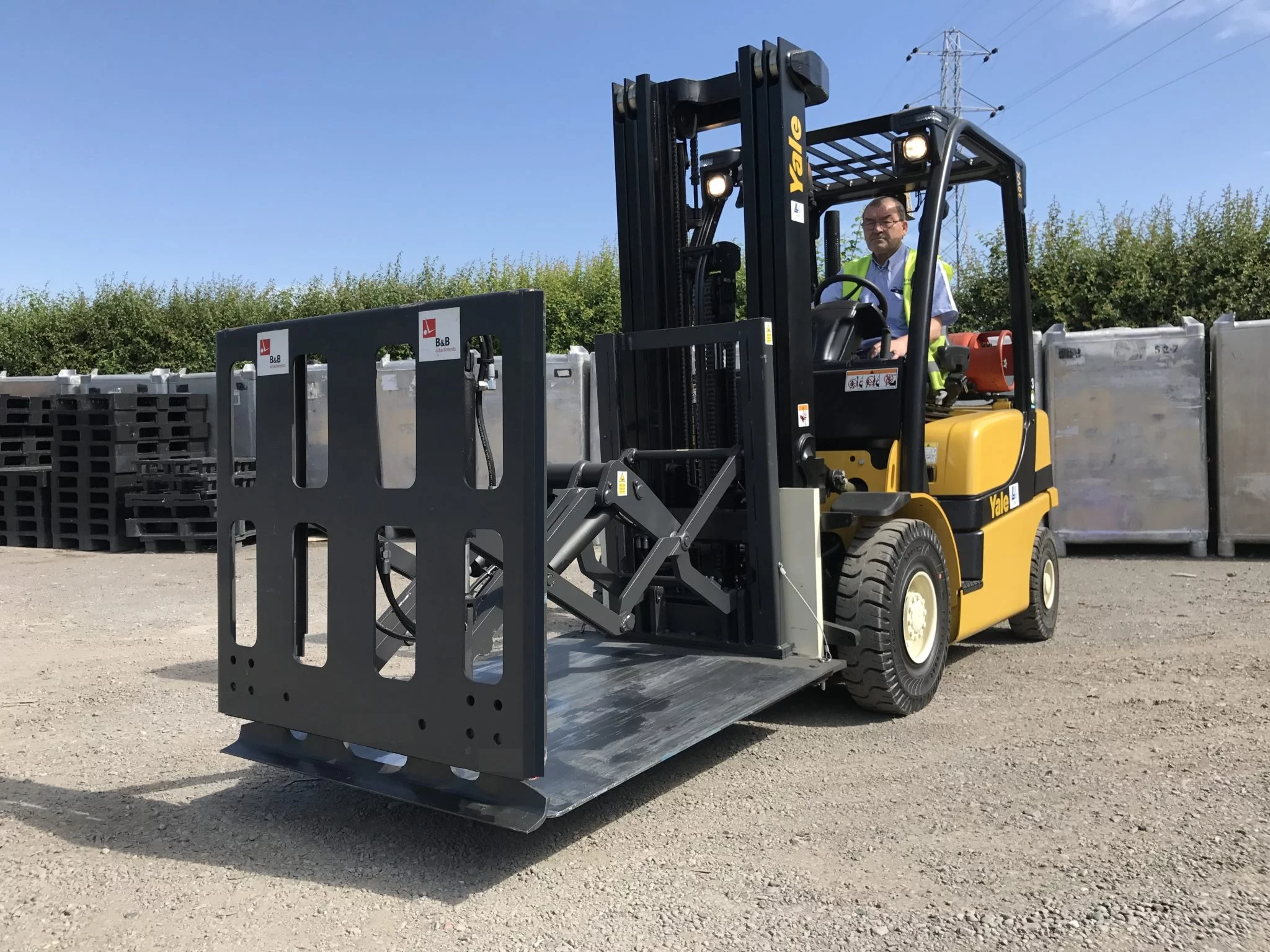A UK forklift attachment specialist explains how pallets can be eliminated altogether:
The slip sheet is an excellent alternative to heavy, bulky and expensive plastic or wooden pallets, allowing companies to eliminate the use of pallets altogether. Slip sheets are thin pallet-sized sheets made of plastic, laminated kraft paperboard, or corrugated fibreboard, and are used in commercial shipping. The same as a pallet, they are placed underneath a load and are used to push or pull the load on and off the platens of the push pull attachment. Slip sheets are becoming more and more popular as companies start to realise their potential for return on investment. They offer a significant number of advantages over pallets. The slip sheet has huge potential for cost savings as well as productivity benefits for a company.
Unlike pallets, a slip-sheet is cheap enough to be thrown away after each use, and it doesn’t need to be tracked or repaired. It also weighs much less than a wooden pallet. Therefore, you can load more goods on slip sheets into the truck or container, maximising the use of space and minimising shipping costs. It is very thin compared to pallets, taking up much less space when stored.
Considered environmentally friendly, slip sheets are easily recyclable due to an increasing number of companies producing them from recycled materials.
To enable the use of slip sheets, a forklift truck must be fitted with a specialist hydraulic push-pull attachment. A push pull attachment can be easily installed on a forklift in only a few minutes.
K-based material handling equipment manufacturer B&B Attachments specialises in attachment design and innovation. The company manufactures and supplies push-pull attachments, together with a full range of handling solutions for a variety of industries.
Specifically developed for handling slip sheets, the Push Pull attachment from B&B, utilises a gripper bar which clamps down on the sheet and pulls the load onto the platens during the loading process. The driver can then extend the hydraulic pushing grate, while reversing the forklift, allowing the goods to be discharged from the platens and onto the container or truck trailer.
This fork mounted attachment is easily connected to a conventional forklift truck for efficient pallet-less handling. It can then be swiftly disconnected to allow the forklift to return to handling pallets, ensuring the highest truck utilisation possible. It enables safe, productive handling of pallet-less materials in applications such as beverage handling, general cargo handling, bagged goods, fruit and corrugated box handling. Capacities are available in 1600kg and 2000kg and are designed with options of load push, push pull and push pull with sheet retention. Side shift is optional on dedicated models.
An alternative solution is the slip-on fork mounted model. This model is designed for applications requiring the intermittent use of a slip-sheet. This attachment can be fitted to the forklift’s original forks within minutes by the truck operator, without the use of specialised tools or hydraulic equipment. It can also be fitted to the truck with a load backrest in place. It provides the perfect solution for when a standard lift truck needs to be converted to a slip sheet forklift.
For more information about how slip sheet handling with a Push-Pull attachment could improve your operation, contact B&B Attachments www.bandbattachments.com or e-mail info@bandbattachments.com.



